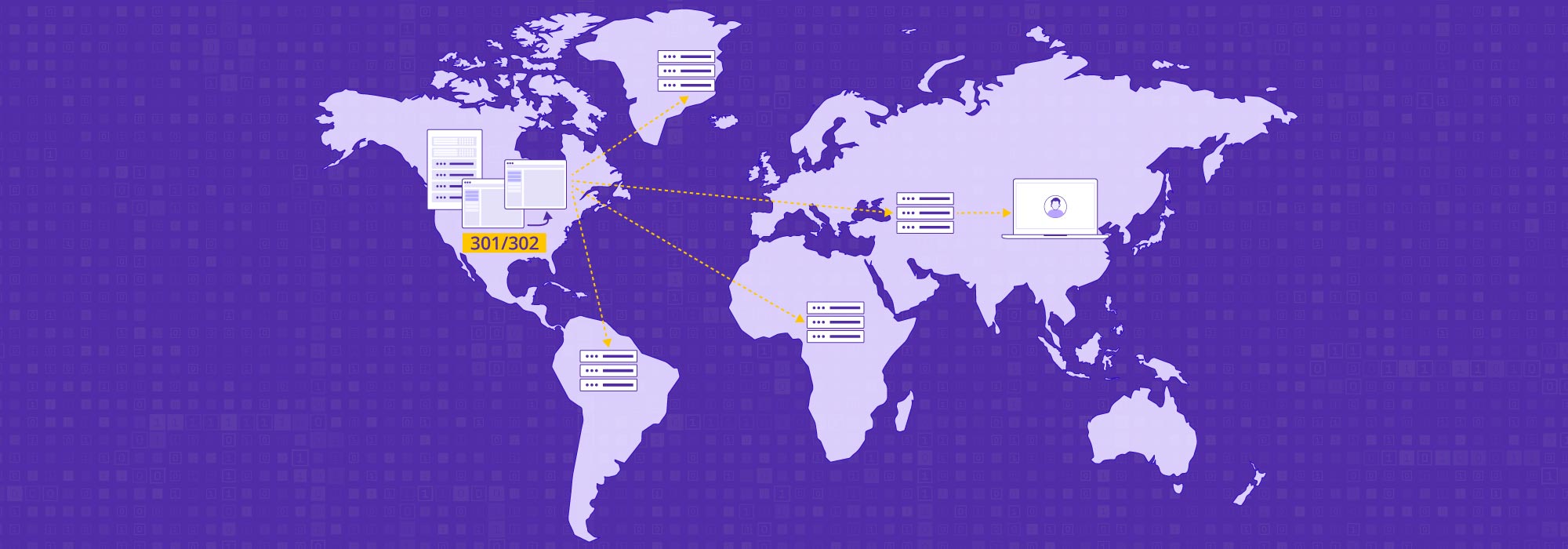In the past, when websites were simpler, they would be hosted on a server and users would access the content on the site by requesting resources from the server. These websites would comprise mostly of static and small files which would be downloaded by the users.
But with today’s websites becoming more complex and media-rich, internet speeds becoming much higher and with consumer needs changing, the demands placed on web hosting has also gone up tremendously. This has led to the popularity of hosting methods like that which use Content Delivery Networks (CDNs).
Key Differences Between CDN and Local Hosting
A CDN is basically a geographically distributed network of servers and their data centers that are responsible for delivering content to end users. It is a relatively recent development in web hosting and differs from traditional local hosting in a few important ways.
- Number of servers: While traditional hosting relied on one single server, a CDN is based on a distributed network of servers (known as edge servers) spread across the globe.
- Volume of content delivered: In the case of local hosting, all of the website content is delivered to the user, irrespective of the user’s distance to the server. In contrast, CDN-based hosting may not deliver 100 percent of the content – only a majority of it, depending on whether the content is static or dynamic.
- Content delivery speed: Compared to traditional hosting, CDNs allow businesses to deliver their content to a large, geographically spread audiences quickly with little delays and minimal effect on their consumption experience.
The Benefits of Using a CDN
CDNs were conceptualised and designed with the goal of delivering content quickly to end users, especially those located much farther away from the main server that hosted the content. The appeal of CDNs lies in the number of benefits they provide for businesses which rely on content distribution, or even those which use websites that are rich in media.
-
CDNs help improve website page load times
Due to the close proximity of the edge servers to the end users, CDNs help improve the user experience for a website visitor by allowing them to load the content quickly. This in turn helps businesses reduce bounce rates and keep more visitors around longer, contributing towards leads and sales.
-
CDNs lower the cost of bandwidth
The process by which a website server responds to an end user’s request consumes bandwidth. If the website is information-heavy and media-rich, this can drive the costs of bandwidth consumption for businesses. CDNs can reduce the amount of data that needs to move between the origin server and the end user, by caching some content on local edge servers, thereby bringing down the bandwidth costs.
-
CDNs allow businesses to scale effectively
For businesses that are keen on scaling across geographies, CDNs can be a powerful asset. By ensuring that the business website has more Points of Presence across different regions and ensuring that distributed audiences get the same user experience, CDNs can help the business penetrate new markets.
-
CDNs help improve security
CDNs can almost act as a DDoS protection and mitigation mechanism due to the presence of distributed edge servers. These can handle traffic spikes that may result from DDoS attacks and divert the high volume of requests equally across the entire capacity of the network.
Ultra-Fast CDN Service
Maximize the performance and reliability of your website and applications.
Are There Advantages to Using Local Files Over a CDN
Despite the many benefits offered by CDNs, local file hosting still has its place in specific scenarios. It comes down to what is best suited for each individual business.
For example, if your business website is simple and not rich in multimedia content, the performance benefits to be gained with CDNs may be negligible. CDNs are best suited for today’s modern websites which involve different types of media files and a combination of static and dynamic content. With a local server hosting your website, the scope is also quite narrow and focused, and you don’t have to worry about the nature and configuration of a network of servers.
Using a dedicated server also allows for more customization and potentially easier support, as you could work with the hosting provider and developers to meet any specific requirements or issues you might have. With CDNs too, you could get the same kind of service but it varies from provider to provider and ultimately depends on the one you choose.
Understanding How CDNs Work & Choosing The Right One
CDNs work by delivering data and content to end users using a global network of servers, located in different parts of the world.
Every time a user requests content, whether it be to load a photo or to play a video, this request is taken up by the local host server or the edge server of the CDN. This is the server that is closest to the end user’s location at the time.
This proximity to the end user allows CDNs to reduce the latency, or the time it takes to load the requested content for the user. For example, if your content-heavy site (or even a media-rich business website) is hosted locally in Kuala Lumpur, your customers or audience based in Malaysia may be able to consume the requested content quickly. But for someone halfway across the world in say, Toronto or Dublin, the time taken to load the content will be a lot more. CDNs account for this by distributing content in local edge servers, which may be present in Canada and Ireland, to allow for users in those regions to access the requested content quickly.
If you go with a CDN for your hosting needs, you are essentially relying on a third party to help you deliver your content. So when you choose your CDN provider, you must consider a number of factors including the global coverage for their Points of Presence, performance and cost.
Also think about how much control you will have over your content delivery and how much work you will need to put in for integration and management.
CDN360 is a leading evolution of CDNs which help accelerate, secure and scale applications while also giving you granular control over your content delivery and costs. It comprises a clean workflow and programming interfaces, creating an engaging experience for engineering teams. CDN360 comes ready to be fully integrated into the development-automation process, along with self-service capabilities, and a friendly yet powerful user interface and application programming interface (API).
Why CDNs Come Out on Top When Comparing vs Local
Although the choice between local and CDN hosting depends entirely on your business needs, all signs point to CDNs being a better option for growing businesses.
Even if you don’t see a need for CDNs right now, it is natural to assume that as you grow, your business will attract more traffic to your website. CDNs can help in reducing the load on your server to keep up with this increase in demand and scale to meet a bigger pool of customers and audiences.
No matter how big or small your business is, one thing is certain – customers today are increasingly expecting faster load times for the pages they visit and easier user experiences in consuming content or making purchases. This is exactly what CDNs can help with and in ways that local hosting may not be able to over a period of time.


